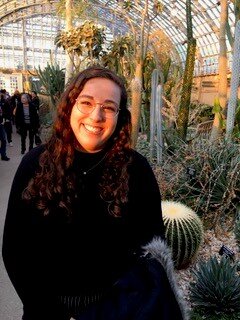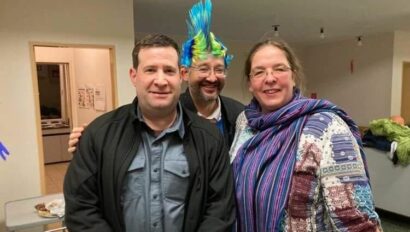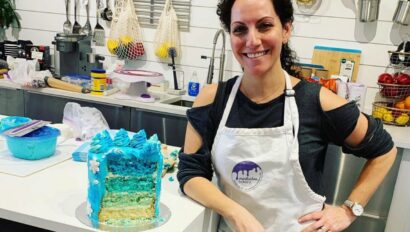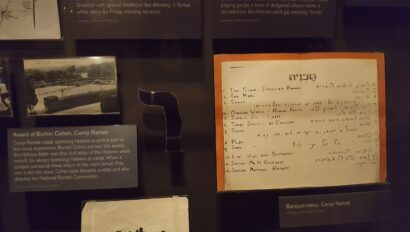Liat is a rising senior at The George Washington University where she’s studying international affairs and journalism. Last summer she was a counselor on Tzevet Nivonim. She hopes to successfully return to DC in the fall and *fingers crossed* have an in-person graduation!
Ramah Reflections
by Liat Wasserman, Nivo 2015
This past semester was one of the most wonderfully chaotic periods of my life. I spent a little over 2 months studying abroad at Tel Aviv University and traveled solo to Budapest to visit a cousin I didn’t know existed. I voted in Israeli elections during my government mandated quarantine and had weekly dinners with my grandparents in Rishon Lezion after years of not really seeing them at all. And yet, almost as quickly as it all began, I found myself back home taking online classes, feeling like none of it had actually happened.
At one point during my time abroad I visited Milan to meet up with two of my close camp friends who were studying at Bocconi University (thank you to Raphy Gendler and Jared Zirkes for the unmatched Italian hospitality). You would think that in one of the most iconic European cities that talks of the beautiful architecture and carbo-loaded food would consume most of the conversations we shared. And yet, after full days of sightseeing and general sensory overload, we didn’t sit around discussing local fare or cultural takeaways. Instead, we were in tears laughing about the Camp Ramah in Wisconsin 2009 promotional video’s electro-pop soundtrack and deciding who was going to “do kima” the next morning. Sure enough, I woke up one morning to them shouting “Bo-bo-boker tov” into my room and flickering the lights for the full camp effect.
In all honesty, I didn’t expect anything different from the visit. I had been excited all along to explore a new city, but I was equally excited about doing the same things that we had always done: sharing the same 10 stories about camp, brainstorming shtick that approximately 3 people would find funny, and fixating on all the mundane yet specific things we missed about Ramah.
And now that I’m home, spending my first summer away from camp since 2009, I find myself in the same routine—texting my friends about all the little things we miss, especially the things we never knew we’d miss. I miss the pareve brownies from Wednesday cookouts. I miss counselors changing the desktop backgrounds on the Mercaz computers to pictures of their friends from when they were 13. I miss walking around the Beit Am comparing plaques and trying to classify them by “design-era.” I miss the sound of gravel beneath my feet when I walk back to my cabin late at night, and how when camp is so dark and quiet it’s uniquely comforting.
I don’t want to fall into the trope of being the camp counselor who won’t move on from camp. But after a semester of unforeseen events, being in touch with people from Ramah has been one of the most consistent and centering things in my life.
When it was announced that camp was going to be closed for the summer my social media feeds were flooded with long form posts processing the news. My JC summer campers were supposed to be in Nivonim this year, and as they messaged me in panic I didn’t feel like there was any good advice other than to encourage them to feel everything they were feeling.
Thankfully, it seems that they are doing just that by circling back to all of their inside jokes and finding comfort in all the little things they know can’t be taken away from their camp experience. They’re remembering all of the niche details that have made camp feel like camp. They seem to be doing the same thing that my friends and I are doing now, even though most of us weren’t even planning to be in Conover this summer.
We all remember things differently. There’s so much that my old counselors remember about camp of which I have zero recollection, and also things that my campers discuss that I can’t relate to. But the thing is that it doesn’t matter because there are also so many universal things about Ramah that are untouchable, and we recognize that the things we remember differently are on some level entirely the same.
I have no idea what the rest of this year is going to look like. My college has said basically everything except what “hybrid learning” actually means, and I don’t understand how you can socially distance over 10,000 undergraduate students on a city campus. Fortunately though, the one thing I think I can count on is facetiming Ramah friends and laughing about whether Mexican lasagna was actually a camp meal or if it was something we collectively imagined.






